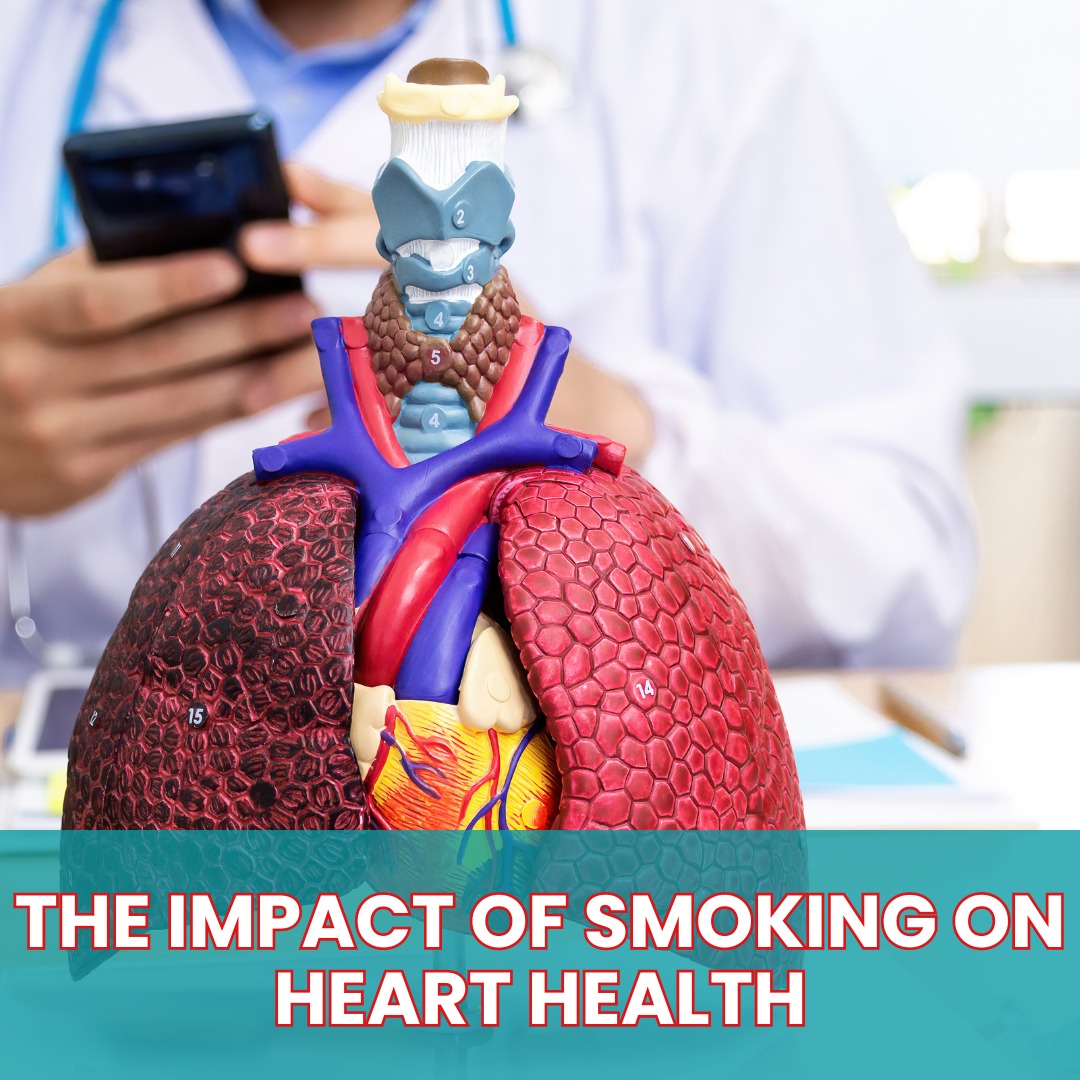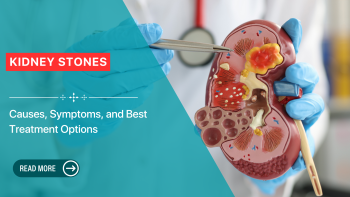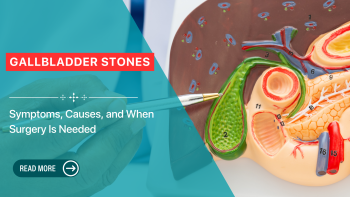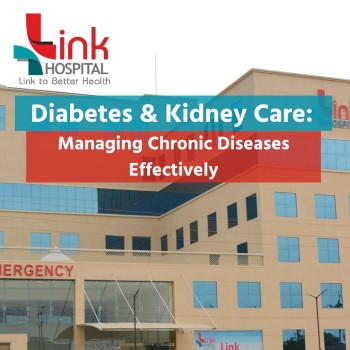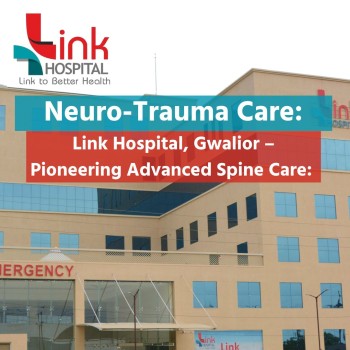Smoking is one of
the most significant risk factors for heart disease, contributing to millions
of deaths worldwide each year. The chemicals in tobacco smoke damage your heart
and blood vessels, leading to cardiovascular disease (CVD), which is the
leading cause of death globally. Understanding how smoking affects your heart
and learning effective strategies to quit can dramatically improve your heart
health and overall well-being.
The Impact of Smoking on Heart Health
1. Narrowing of Blood Vessels
One of the primary effects of smoking is the narrowing and hardening of your arteries, a condition known as atherosclerosis. Chemicals in tobacco smoke, such as nicotine and carbon monoxide, cause your blood vessels to constrict, reducing the amount of oxygen-rich blood flowing to your heart and other organs. Over time, this leads to plaque buildup in the arteries, increasing the risk of heart attacks and strokes.
2. Increased Heart Rate and Blood Pressure
Nicotine in cigarettes stimulates the release of
adrenaline, which causes your heart to beat faster and your blood pressure to
rise. This constant strain on your heart can lead to hypertensive heart
disease, which increases the likelihood of heart failure, heart attacks, and
sudden cardiac death.
3. Damage to the Arterial Lining
The toxic substances in tobacco smoke damage the inner
lining of your arteries, making them more susceptible to plaque formation. This
damage can cause the arteries to become thick and stiff, restricting blood
flow. As a result, the heart has to work harder to pump blood, which can lead
to coronary artery disease and other cardiovascular conditions.
4. Reduced Oxygen Supply
Carbon monoxide from cigarette smoke binds with
haemoglobin in the blood more readily than oxygen does, reducing the amount of
oxygen that reaches your heart and other organs. This lack of oxygen forces
your heart to work harder, increasing the risk of angina, heart attacks, and
other heart-related problems.
5. Increased Risk of Blood Clots
Smoking increases the tendency of your blood to clot.
These clots can block blood flow to the heart and brain, leading to heart
attacks, strokes, and other potentially fatal conditions. The risk is further
compounded if you have other risk factors such as high cholesterol or high
blood pressure.
Tips to Quit Smoking for a Healthier Heart
Quitting smoking is one of the most important steps
you can take to improve your heart health. Although it can be challenging, the
benefits of quitting are immediate and long-lasting. Here are some effective
strategies to help you quit smoking:
1. Set a Quit Date
Choose a specific date to quit smoking and stick to
it. Having a clear deadline gives you time to prepare mentally and physically.
Tell your friends, family, and coworkers about your quit date so they can
support you.
2. Understand Your Triggers
Identify the situations, emotions, or activities that
make you want to smoke. Common triggers include stress, drinking alcohol, or
being around other smokers. Once you know your triggers, you can develop
strategies to avoid or cope with them without smoking.
3. Use Nicotine Replacement Therapy (NRT)
Nicotine replacement products, such as patches, gum,
or lozenges, can help reduce withdrawal symptoms and cravings. These products
provide a controlled amount of nicotine without the harmful chemicals found in
tobacco smoke, making it easier to quit.
4. Consider Prescription Medications
There are prescription medications available that can help
you quit smoking by reducing cravings and withdrawal symptoms. Talk to your
healthcare provider about whether these medications are right for you.
5. Seek Behavioral Support
Counselling and support groups can provide the
encouragement and guidance you need to quit smoking. Behavioural therapy can
help you develop coping strategies and build a support system that will help
you stay smoke-free.
6. Stay Active
Physical activity can help reduce cravings and
withdrawal symptoms. Exercise also promotes heart health by lowering blood
pressure, improving circulation, and reducing stress. Aim for at least 30
minutes of moderate exercise most days of the week.
7. Avoid Alcohol and Other Triggers
Alcohol can weaken your resolve to quit smoking, so
it’s best to avoid it, especially in the early stages of quitting. If being
around other smokers makes you want to smoke, try to avoid those situations or
ask them not to smoke around you.
8. Reward Yourself
Quitting smoking is a significant accomplishment, so
reward yourself for each milestone you reach. Use the money you save from not
buying cigarettes to treat yourself to something special.
Link Hospital: Your Partner in Heart Health
At Link
Hospital, the best multi-specialist hospital in Gwalior, we are committed
to helping you achieve a healthier heart and a smoke-free life. Our team of
expert cardiologists and healthcare professionals provide comprehensive care
and support to help you quit smoking and manage the associated risks.
Link
Hospital offers personalized smoking cessation programs that include
counselling, medication management, and lifestyle advice. We understand that
quitting smoking can be challenging, but with the right support and guidance,
you can overcome it and improve your heart health.
Our state-of-the-art facilities and experienced staff
ensure that you receive the highest quality care for all your heart-related
needs. Whether you require preventive care, treatment for heart conditions, or
assistance in quitting smoking, Link
Hospital is here to support you every step of the way.
Conclusion
Smoking poses a significant threat to your heart
health, but quitting can dramatically reduce your risk of heart disease and
improve your overall quality of life. By understanding how smoking affects your
heart and using effective strategies to quit, you can take control of your
health and prevent serious complications.
For expert advice and support in quitting smoking and
maintaining a healthy heart, trust the dedicated team at Link Hospital, Gwalior’s leading multi-specialist hospital. Your
journey to better heart health starts with us.
